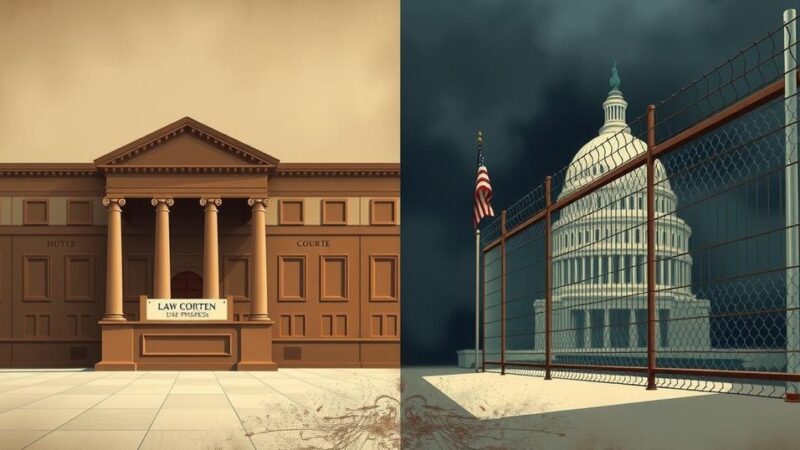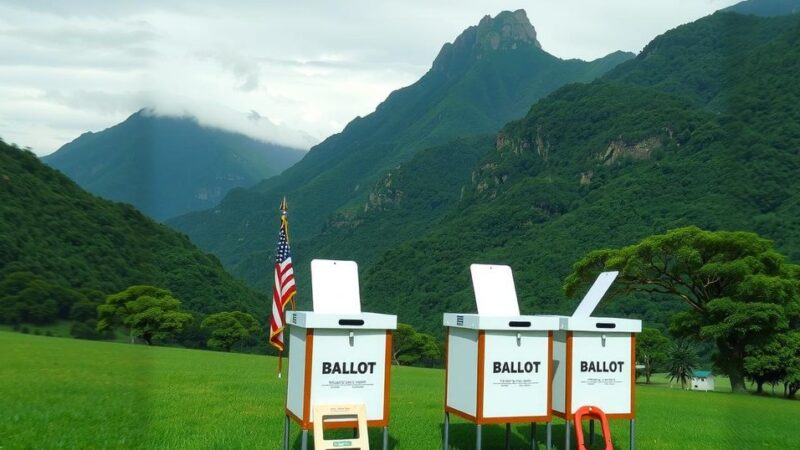Frank Kwaku Appiah, known as Appiah Stadium, is a complex figure in Ghanaian politics, transitioning from an NPP supporter to a fervent advocate for the NDC. His public persona is characterized by media spectacles and controversies that reveal the dynamics of Ghana’s patronage-driven political culture. Appiah Stadium’s story illustrates the interplay between activism, opportunism, and survival strategies within democratic engagement.
Frank Kwaku Appiah, better known as “Appiah Stadium,” is a prominent and controversial figure within Ghanaian politics. His unrelenting presence at state events and penchant for controversies have rendered him both a folk hero and a political provocateur. As a self-styled activist and unwavering supporter of the National Democratic Congress (NDC), his transformation from a security guard at Kumasi’s Baba Yara Sports Stadium to a notable presence in Ghana’s political landscape demonstrates his ambition and adaptability within the patronage-driven political culture.
Appiah Stadium’s political trajectory began with his allegiance to the New Patriotic Party (NPP), during which he defended the Kufuor administration on radio. However, following a near-fatal incident involving NDC youth in 2009, where his life was threatened and his vehicle torched, his relationship with the NPP deteriorated. Feeling forsaken, he adeptly shifted gears to become a fervent supporter of the NDC, utilizing his oratory prowess and media appeal to establish himself within the party, exemplifying the volatile allegiance often seen among grassroots political activists.
Central to Appiah Stadium’s approach is his capacity to generate media spectacles. His calculated efforts to approach key political figures, including President John Mahama, often lead to disruption at public events, capturing headlines and media attention. Notably, during Mahama’s funeral attendance in February 2025, Appiah Stadium’s attempts to reach the president, though thwarted by security, dominated news cycles, further solidifying his presence in political discourse. He articulated the strategic nature of his actions, stating, “If I don’t get closer to [Mahama], I won’t get my share of the cake.”
His notoriety is also marked by a willingness to navigate controversial territory. In 2017, he was detained for disseminating allegations about former President Akufo-Addo’s drug use, provoking widespread outrage and drawing criticism of police actions. His ability to rebound from this incident, marked by a public apology and the eventual dropping of charges, allowed him to frame the situation as a testament to resilience, further enhancing his standing among NDC supporters.
Critics assert that Appiah Stadium’s antics are tolerated as he serves the interests of political figures. His loyalty to the NDC, despite his origins with the NPP, showcases the party’s capacity to integrate dissenting voices. Furthermore, his vocal ambitions, such as his pursuit to head security at Ghana Gas, encapsulate the transactional nature of his relationship with the Mahama camp, appealing to grassroots aspirations for political leverage and economic mobility.
Beyond his political machinations, Appiah Stadium adeptly navigates Ghana’s cultural spheres. His respectful appearance at cultural events, such as the 2025 Akwasidae Kese festival where he presented himself to the Asantehene in traditional attire, signifies a balance between political audacity and cultural reverence. By acknowledging traditional norms, he counters perceptions of being solely a political disruptor, presenting himself as a man rooted deeply in Ghanaian values.
Appiah Stadium’s sustained relevance in Ghanaian politics hinges on his media savvy, representation of the grassroots desire for political patronage, and skillful engagement across cultural and political domains. Though his tactics provoke critique and legal challenges, they mirror the realities within Ghanaian democracy, where visibility correlates with political viability. For the NDC, Appiah Stadium is a flawed yet effective advocate; for detractors, he epitomizes unregulated political theatrics. Ultimately, his existence challenges observers to reflect on the complex dynamics of activism and opportunism within democratic societies, underlining that as long as audacity and spectacle are rewarded, Appiah Stadium will persistence in the political arena, unabated and conspicuously visible.
In summary, Frank Kwaku Appiah, or Appiah Stadium, represents the complexities of political activism within Ghana. From a volatile alignment of political loyalties to masterfully crafting media spectacles, he encapsulates the delicate equilibrium between relevance and controversy. His relationship with political elites and grassroots supporters illustrates the workings of patronage politics in Ghana, serving as a reflection of broader democratic tensions. As long as Ghana’s political landscape continues to prize visibility and audacity, figures like Appiah Stadium will remain salient in shaping its dialogue.
Original Source: 3news.com






